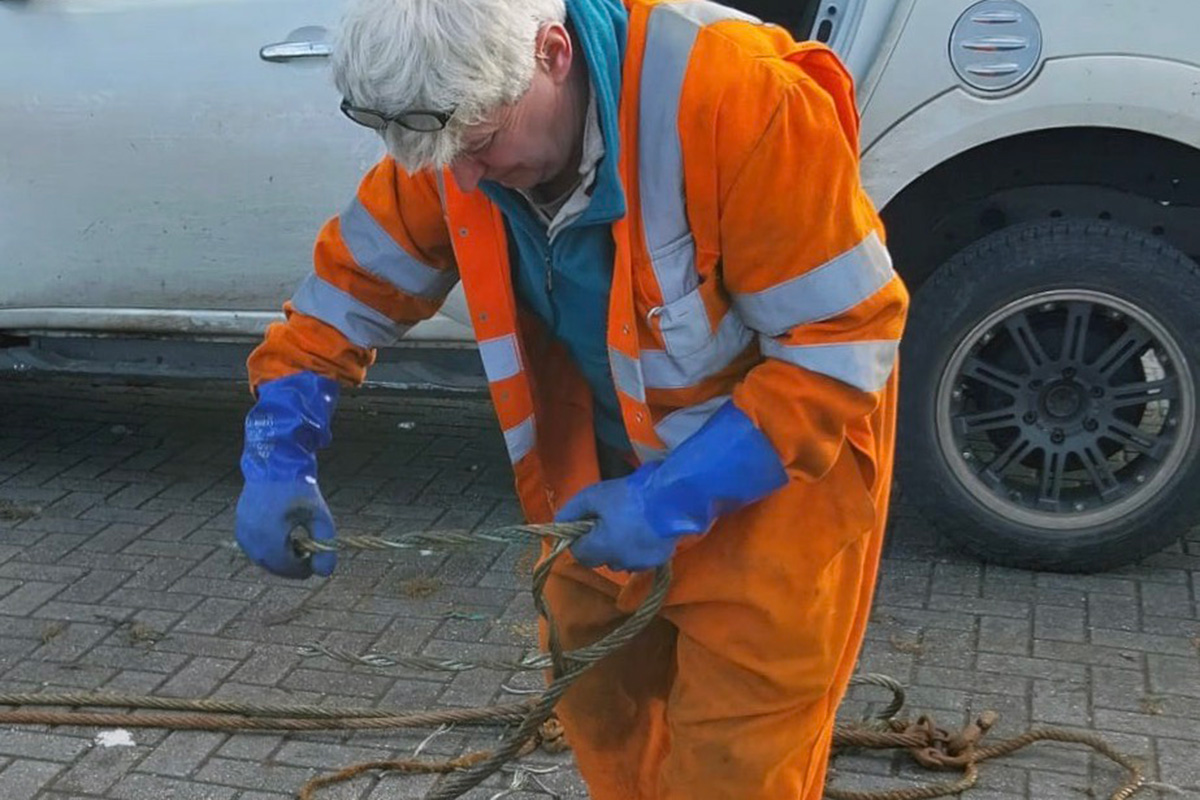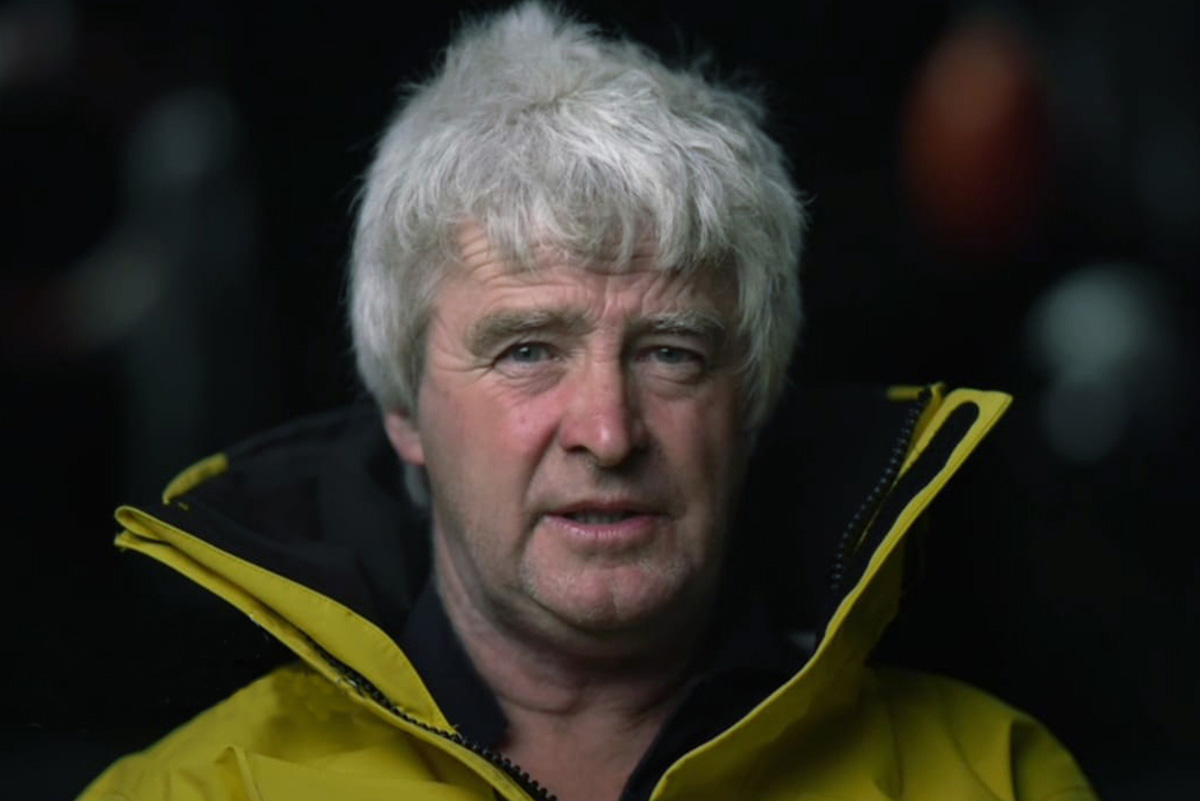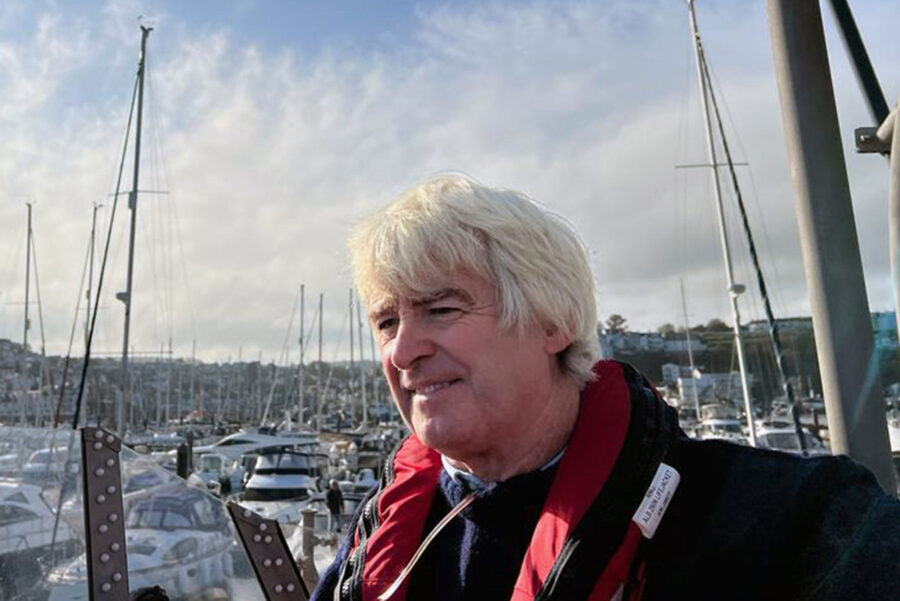“I kind of retired from going to sea full-time in 2016,” Richard Fowler told Fishing News. “I own a 10m vessel, Rebecca BM 34, that other people now skipper for me. For my retirement, I spend all day mending people’s nets and splicing wire. That’s my retirement – I don’t stop from 5.30am to 8pm!”
Bromley-born Richard has lived and worked out of Brixham since 1979. “My last five or six years of schooling was spent on the Isles of Scilly. That’s where I developed an interest in fishing and boating, and generally messing about with boats. There were a lot of very clever boating people on the Isles of Scilly from whom I picked up an awful lot of knowledge, which has taken me through most of my boating life.”
After graduating from Lowestoft Marine College, Richard’s first real industry experience came as a deckhand on Lowestoft vessels Hatherley, Boston Viscount and Suffolk Champion. “That was my first commercial fishing experience. I then got fed up with doing 10- day trips in the cold, miserable North Sea. In the late 1970s we moved to Brixham, where I got a job on a day-boat called Spartacus.”
By the mid-1980s Richard was skippering day-boats, before buying his own vessel towards the end of the decade. “I purchased my own boat in 1988 – the Peace and Plenty, which I fished for 10 years. I then sold that and bought the Gerry Ann C from Teignmouth, and fished that for 20 years up until my ‘retirement’.”
His long fishing career was recognised at the 2021 Fishing News Awards, where he was named Demersal Fisherman of the Year. These days, apart from the occasional trip when absolutely necessary, the majority of Richard’s working day is spent firmly on dry land.
“I do anything that anybody doesn’t want to do – which nowadays is quite a lot. I started my own company – it’s only me really, but occasionally I’ll have people to help.
“I started by putting together fishing industry safety folders. As I came ashore, that side of things was becoming more and more prevalent. People don’t like filling in folders – people don’t really like filling in anything. Most fishermen want to go fishing, and then go home. They don’t really want to do anything other than that.
“When the MCA appeared on the scene saying: ‘We want this, we want that’ – and all the rest of it – I started filling in safety folders for private boats. The smaller day-boats would come and ask if I could sort them out a safety folder. That added another little string to the bow.”
Since then, Richard has added a few more strings to that bow – which means an early start to his working day.
“At 5.30am the alarm will go off – and then stuff happens!
“What a fisherman used to do 30 years ago is now what I do most of the day. I do quite a bit of net mending, make footropes, make rubber bridles for Brixham Trawl Makers and for myself, and splice most of the beamers’ wires – because no one seems to want to splice any more. That’s taken me from Penzance to Holyhead this year.”

Richard’s skills in net mending and gear repair are in high demand. “Boats are now pushed to sea harder than they used to be. Any downtime the crew can get, they’d rather have at home with their families than be sat on the quay mending gear or splicing this or doing that.”
Due to the nature of Richard’s role, he says that ‘no two days are the same’. “I could go down to the store, put the kettle on and nothing happens until 10am. In that case I’ll do bits and pieces that need doing, like cleaning up or getting gear ready.
“Sometimes I can go out the door on Monday morning with nothing to do, and by 8am there will be five jobs. That could take me two or three days. Other days, I can sit down at 6am and the phone will ring, and I’ll be asked to do a job first thing.
“I may also have jobs booked in, so I know that I have three splices to do – but generally work doesn’t tend to get booked in advance. Stuff just sort of always happens!”

Richard, seen here appearing on the BBC’s Saving Lives at Sea, is also currently stand-in coxswain of the Torbay lifeboat. Next year he celebrates his 30th anniversary with the RNLI. “The lifeboating is brilliant. Being a coxswain is great – you’re there organising people and trying to sort out someone else’s problems.”
The modern pressure to get a vessel back to sea can have an impact on his working hours. “I could have a phone call at 4pm saying a boat is on its way in, and be asked to do two splices that night so the vessel can go back to sea. At 4pm, you’re thinking of going home – but there’s a boat coming in at 8pm. By the time I’ve done two splices, that’s 10pm.
“Thirty years ago, there wasn’t the urgency. You can feel a bit of pressure sometimes. You don’t mind doing the job if you know they’re going to go back to sea, and you’re helping them get the boat back fishing. It’s when you’re told the gear has got to be done by a certain time, and then it doesn’t get used for a couple of days.”
Despite the challenges, Richard says that he still enjoys what he does. “I spend most of my life sorting out someone else’s disasters. That’s what I do. If something is broken, I’ll fix it.”
This story was taken from the latest issue of Fishing News. For more up-to-date and in-depth reports on the UK and Irish commercial fishing sector, subscribe to Fishing News here or buy the latest single issue for just £3.30 here.
Sign up to Fishing News’ FREE e-newsletter here.








